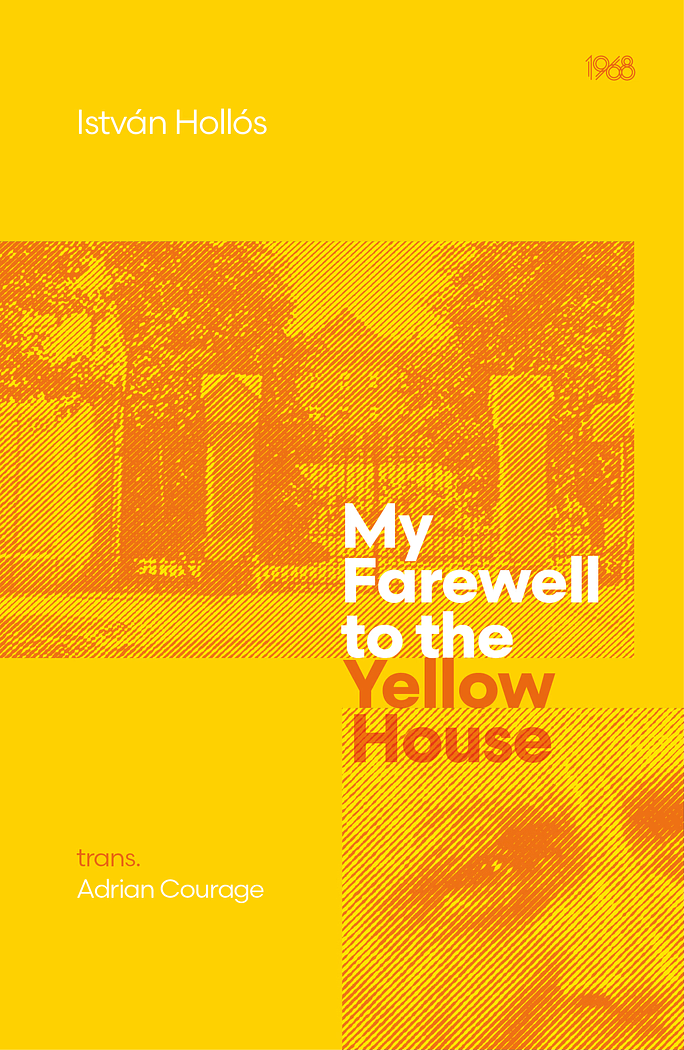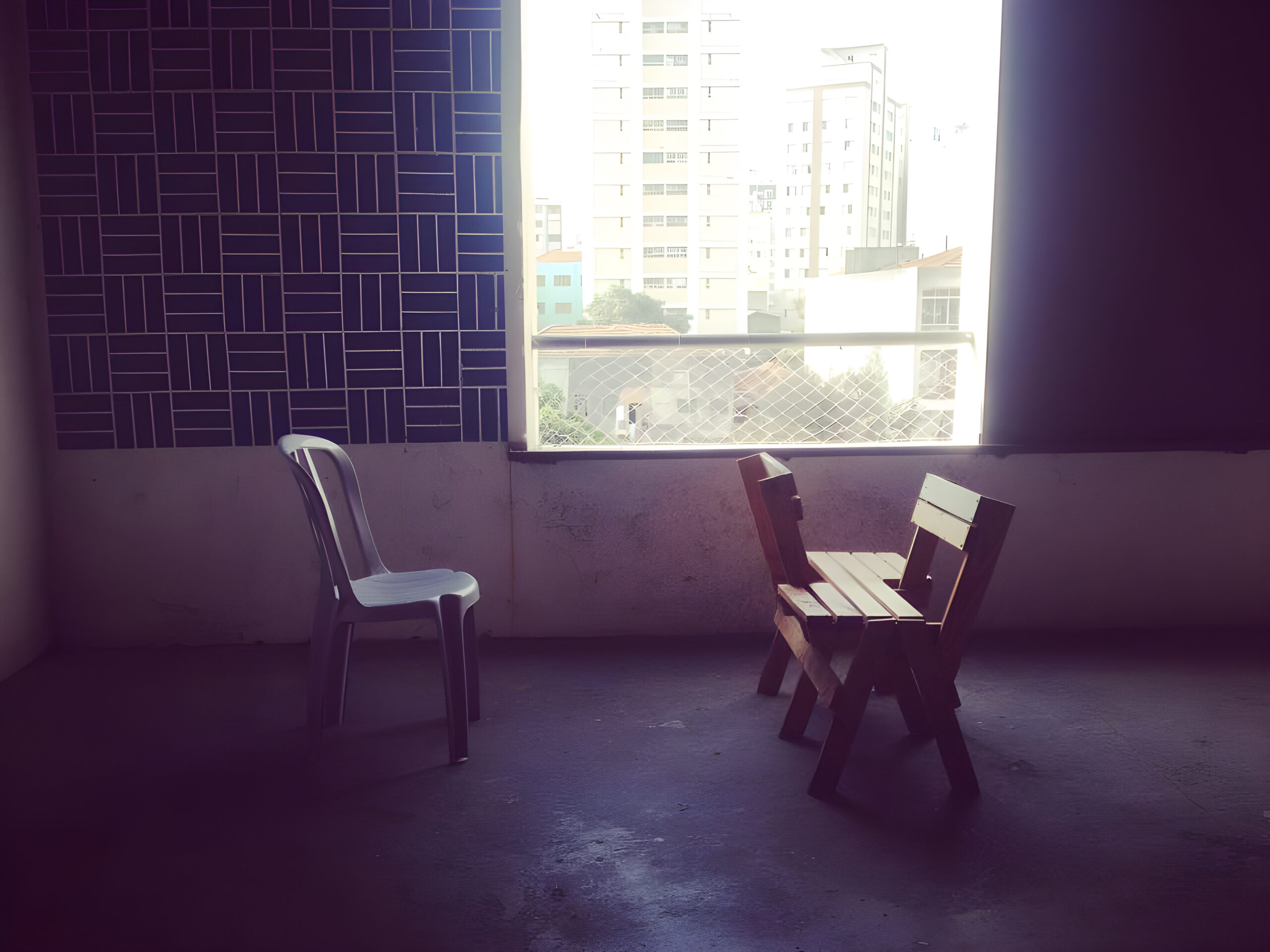The book launch panel discussion (6:00pm – 7:30pm) will be followed by a wine reception (7:30pm – 8pm). The book launch panel discussion is available both in person and online, hosted by the Freud Museum London.

My Farewell to the Yellow House is an event-book: a manifesto that aims to rethink the practical and theoretical bases of psychiatric care, written in 1927 by a unique and little-known voice of the Budapest School of Psychoanalysis, psychoanalyst and psychiatrist István Hollós. Nearly one century after its publication in Hungarian, the English translation captures Hollós’s playful, passionate, insightful, ironic and self-ironic style.
To follow István Hollós’s own words, My Farewell to the Yellow House aims to break down the walls of the asylum. From the onset, we can read ‘asylum’ not strictly as an institution, a place, or a building, but as a psychic state, one where the demarcations between the ‘sane’ and the ‘insane’ are strong and unquestionable. The book also offers a sharp critique of society’s gaze upon madness. Although it was written nearly a century ago, it pulsates with contemporary questions. It approaches the fear of madness as a socially and psychically produced phenomenon, leading to exclusion, splitting, and various forms of authoritarianism.
Through this unusual book, István Hollós joins a long line of radical psychiatrists, who were keenly aware of the societal importance of studying the politics of madness: François Tosquelles, Ronald Laing, Franco Basaglia, Franca Ongaro, Franz Fanon, Felix Guattari and Jean Oury, to name but a few. As they have argued, it is the psychiatric hospital itself, or the asylum, or even the doctor-patient relationship that need to be cured. Tuning to the voice of the patients, Hollós writes in the section on ‘What is a Lunatic’ of My Farewell to the Yellow House: ‘We are the sick, but it is you healthy people who must be healed! Through us, the dreaming heroes, storytellers and lunatics, the axis of history creaks towards new, incredible cities and possibilities for life’.
Join us either in person or online for an evening celebrating this exceptional book and its author István Hollós.
The evening will also mark the launch of the book series Important Little Books in Psychoanalysis (1968 Press), edited by Raluca Soreanu, Lizaveta van Munsteren & the FREEPSY collective. The Series will bring to the public radical contributions to psychoanalysis that have not yet been translated into English. My Farewell to the Yellow House is the first book of the Series. 1968 Press editors Daniel Bristow & Graham Smith will also be present for the evening.
This event is a pre-conference event for the two-day conference on Psychoanalysis & Radical Psychiatry, held on November 16-17 at the Wellcome Collection, London. Book your conference tickets here.
PRAISE FOR THE BOOK
‘There is no such thing as “the mentally ill”. There are people.’ A jewel of a book – playful, idiosyncratic and full of pathos, combining the Budapest avant garde, the psychoanalysis of Freud and Ferenczi, and the radical insights of a psychiatrist dreaming the erasure of asylum walls. Dedicated to a social group without a society, living in an upturned world.
Professor Matt ffytche, Department of Psychosocial and Psychoanalytic Studies, University of Essex, UK.
ON THE EVENING
The discussion panel will bring together psychoanalyst Raluca Soreanu, art historian Monika Perenyei, literary historian Mónika Takács & historian of psychoanalysis Antal Bókay, who are also the preface authors for My Farewell to the Yellow House. They will be in conversation with the translators Adrian Courage & Kristina Valendinova and with the evening’s guest speakers: historian & writer Matt ffytche & psychoanalyst Dorothée Bonnigal-Katz.
The book panel will be followed by an in-house wine and canapés reception.
This event is linked to the two-day conference on Psychoanalysis & Radical Psychiatry, held on November 16-17 at the Wellcome Collection, London. Book your tickets here.
SPEAKER BIOGRAPHIES
Antal Bókay is a Professor of modern literature and Literary Theory and co-founder and lecturer of the Psychoanalysis PhD Program at the University of Pécs, Hungary. His research interests include contemporary literary theory, American deconstruction, modern poetry, poetics, theater theory, and the history and theory of psychoanalysis.
Dorothée Bonnigal-Katz is a psychoanalyst, clinical supervisor and translator in the field of psychoanalytic theory. She is Senior Psychotherapist at the Bethlem Royal Hospital, working in inpatient services and the Founder and Clinical Director of the Psychosis Therapy Project (PTP), a specialist community service for people who experience psychosis and complex trauma. She is a Trustee of the International Society for Psychological and Social Approaches to Psychosis (ISPS-UK).
Adrian Courage (London, 1977) is a translator, copywriter and author who lives in Budapest, Hungary. Having attended King’s College School, Wimbledon, he worked for three years as a German-to-English translator at a small ‘transcreation’ agency in Ludwigsburg, Germany. In 2003, he relocated to his mother’s native Hungary, where he established a creative agency of his own. He completed and published his memoir Mandula based on his personal experience of ‘mental illness’. He has since worked on reviewing the translations of the texts of the leading Hungarian psycholanalyst Sándor Ferenczi and My Farewell to the Yellow House by his contemporary István Hollós.
Matt ffytche is a Professor in the Department of Psychosocial and Psychoanalytic Studies, University of Essex, Editor of the journal Psychoanalysis and History, and a trainee with the Site for Contemporary Psychoanalysis. He is currently working on an anthology titled Writing out of this World: An Anthology of marginal, excluded and idiosyncratic texts from ‘outsider’ and psychiatric archives (forthcoming, Reaktion Books). His previous publications include Psychoanalysis in the Age of Totalitarianism, co-edited with Daniel Pick (Routledge, 2016), and Sigmund Freud (Critical Lives, Reaktion Books, 2022).
Monika Perenyei (Budapest) is an art historian, a senior research fellow at the Institute of Art History, HUN-REN Research Centre for the Humanities. Since 2013 she has been the head of the Psychiatric Art Collection of the Hungarian Academy of Sciences. She studied history, English & American literature and art history, with a main focus on the latter, and began her professional experience as a curator at Vadnai Gallery Budapest in 2002. From 2006-2008 she held the Ernst Kállai Grant for art writers, and in 2008 she entered the academic field as an assistant research fellow in the Research Institute of Art History of the Hungarian Academy of Sciences.
Raluca Soreanu is a psychoanalytic and psychosocial thinker and writer. She is Professor of Psychoanalytic Studies in the Department of Psychosocial and Psychoanalytic Studies, University of Essex, and psychoanalyst, member of the Círculo Psicanalítico do Rio de Janeiro. Her most recent book, co-authored with Jenny Willner and Jakob Staberg, is titled Ferenczi Dialogues: On Trauma and Catastrophe (Leuven University Press, 2023). She is the project lead of FREEPSY: Free Clinics and a Psychoanalysis for the People: Progressive Histories, Collective Practices, Implications for Our Times (UKRI Frontier Research Grant) and Editor of the Studies in the Psychosocial series at Palgrave.
Mónika Takács is a literary historian. She studied Theoretical Psychoanalysis in the Doctoral School of Psychology at University of Pécs. Her main field of interest is the connection between literature, linguistics, and psychoanalysis in the first decades of the 20th century in Hungary. Her recent research focuses on the literary and linguistics oeuvre of István Hollós. She has also published articles on Nicolas Abraham and Ivan Fonagy. She is the editor of an interdisciplinary workshop discussion series entitled Art & Psychoanalysis. As a member of the Sándor Ferenczi Society she contributes to the Ferenczi House Project.
Kristina Valendinova is a psychoanalyst working in London. She’s a member of CFAR and of the Cercle Freudien in Paris, as well as a cofounder of Bubble and Speak, a ‘maison verte’ catering to small children and their families in London. She translates from French.

